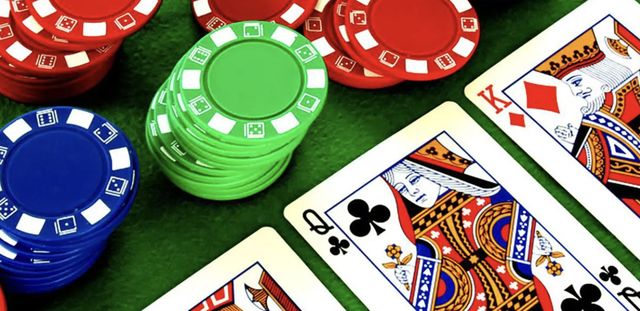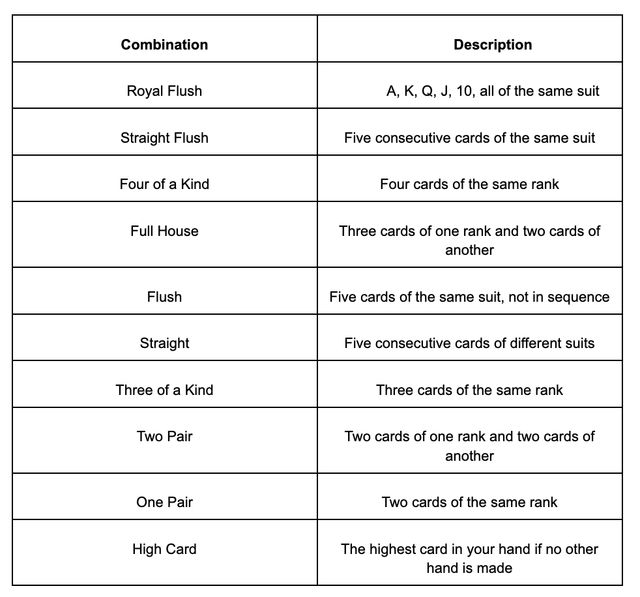Poker Basics for Beginners
- Category: Pics |
- 28 Jun, 2024 |
- Views: 413 |
Ever wondered what it takes to master the art of poker?
If you’re curious about diving into this dynamic card game, mastering the basics is your first step toward understanding the thrilling world of poker.

The Game Basics
Start with the essential rules and hand rankings that form the foundation of poker. Understanding these basics is crucial for any player, whether you’re a complete novice or looking to brush up on the fundamentals.
The point of poker is to win chips or money by making the best possible hand or by convincing other players to fold their hands. At its core, poker is about strategic decision-making and outthinking your opponents.
Players use a combination of skill, psychology, and probability to determine the best course of action in each hand. Whether through careful calculation of odds, reading opponents’ behavior, or executing well-timed bluffs, the ultimate goal is accumulating more chips than your competitors.
It’s a game that tests your mental acuity, emotional control, and ability to adapt, making every session a unique and engaging experience.
Hand Rankings
Understanding hand rankings is crucial. The standard rankings from highest to lowest comprise:

Starting Hands
Not all hands are worth playing. Some basic guidelines:
• Premium Hands: AA, KK, QQ, AK (suited or unsuited). These should almost always be played.
• Good Hands: AQ, AJ, KQ (suited or unsuited), and lower pairs (10s, 9s, etc.). Play these hands from middle to late positions.
• Marginal Hands: Low-suited connectors (e.g., 6–7 of hearts) or small pairs (e.g., 2–2). Play these hands only if the conditions are favorable (late position, no raises).
Betting Rounds
In most poker games, like Texas Hold’em, four betting rounds:
• Pre-Flop: After receiving two hole cards, players bet.
• Flop: Three community cards are dealt, and another round of betting occurs.
• Turn: A fourth community card is dealt, followed by another betting round.
• River: The fifth and final community card is dealt, and the last round of betting happens.
Blinds
Poker games usually have forced bets called blinds:
• Small Blind: The player to the left of the dealer posts this.
• Big Blind: The player to the left of the small blind posts this, usually double the small blind.
These bets get the action going and ensure there’s something to play for in each hand.
Top 6 Poker Strategies for Beginners
Delve into strategic concepts that can help you make smarter decisions at the table. From understanding position to mastering the art of bluffing, these strategies will give you a competitive edge.
Starting Hand Selection
Focus on playing strong hands and fold weaker ones to minimize losses. Learn which hands to play from each table position (early, middle, and late).
Positional Awareness
Understand the importance of position in poker. Play more aggressively from late positions and more cautiously from early positions to control the hand's flow.
Reading Opponents
Watch for betting patterns, timing tells, and opponent tendencies. Exploit weaknesses like aggression or passivity in their playing style.
Bankroll Management
Manage your bankroll carefully to handle variance and reduce losses during downswings. Avoid risking money you can't afford to lose and adjust stakes as needed.
Adaptation and Flexibility
Stay flexible to adapt to changing game dynamics and opponent strategies. Adjust your approach based on table conditions and opponent behavior.
Tilt Control
Emotional control is key to long-term success in poker. We’ll discuss how to manage tilt, the emotional state that can lead to poor decision-making, and keep your cool even when the cards don’t go your way.
1. Take Breaks: If you feel yourself getting frustrated, take a break to cool down.
2. Stay Positive: Focus on making the best decisions rather than the results. Remember, poker is a long-term game.
3. Limit Sessions: Set time limits for your sessions to prevent fatigue and poor decision-making.
Odds and Probabilities
Poker is a game of calculated risks. We’ll explain how to use odds and probabilities to your advantage, helping you make informed decisions about when to call, raise, or fold.
Pot Odds
Pot odds help you decide whether to call a bet. If the pot has $100 and you need to call a $20 bet, the pot odds are 5:1. If your chance of winning (based on your hand and the community cards) is better than 5:1, you should call.
Hand Odds
Understanding the odds of improving your hand is also important. For example:
• Flush Draw: With two suited cards and two more on the board, you have a 19% chance of hitting your flush on the next card.
• Open-Ended Straight Draw: With four consecutive cards, you have a 17% chance of completing your straight on the next card.
Common Mistakes
Everyone makes mistakes, especially when they’re just starting out. We’ll highlight some of the most common errors new players make and how to avoid them, saving you from costly lessons at the table.
Overplaying Hands
Beginners often overplay hands like top pairs or weak aces. Be cautious with these hands, especially against aggressive opponents.
Bluffing Too Much
Bluffing is an art, not a science. Bluff selectively and consider your opponents’ tendencies and the board texture. Don’t bluff just for the sake of it.
Ignoring Position
As mentioned, the position is vital. Many beginners forget this and play the same hands regardless of their position, leading to costly mistakes.
Bankroll Management
Proper bankroll management is essential for long-term success in poker. Consider these basic tips:
• Set Limits: Decide how much money you’re willing to risk and stick to it. Never play with money you can’t afford to lose.
• Buy-Ins: A common rule is to have at least 20–30 buy-ins for the stakes you’re playing. For example, if you’re playing $1/$2 with a $200 buy-in, you should have $4,000 to $6,000 dedicated to your poker bankroll.
• Move Down When Needed: If you’re on a losing streak, don’t be afraid to move down to lower stakes to rebuild your bankroll and confidence.
Practice and Study
Emphasize the importance of continuous learning and practice. Poker is a game of skill that evolves, and staying sharp requires regular study and self-improvement.
Play Regularly: The more you play, the more you’ll learn.
• Review Hands: After each session, review key hands to understand what you did right or wrong.
• Study Resources: Many books, videos, and online forums dedicated to poker strategy. Take advantage of these resources to improve your game.
Reading Opponents
One of the most intriguing aspects of poker is learning to read your opponents. We’ll teach you how to pick up on tells and patterns that can give you valuable insights into their hands and strategies.
• Tight vs. Loose: Tight players play fewer hands and are usually more conservative, while loose players play many hands and are more aggressive.
• Aggressive vs. Passive: Aggressive players frequently bet and raise, whereas passive players often call and rarely raise.
Pay attention to how your opponents play in different situations. This information can help you make better decisions.
Conclusion
Poker is more than just a card game, it’s a thrilling blend of skill, strategy, and psychology that offers endless excitement and intellectual challenge.
Whether you’re looking for a social activity to enjoy with friends or aiming to compete at higher levels, poker provides a unique opportunity to sharpen your mind, enhance your decision-making skills, and experience the adrenaline rush of high-stakes action.
Playing poker can improve your mathematical abilities, teach you patience and discipline, and develop your ability to read people and situations.
So why wait?
Start playing poker today and dive into a world where every hand is a new adventure and every game is a chance to grow and have fun.

